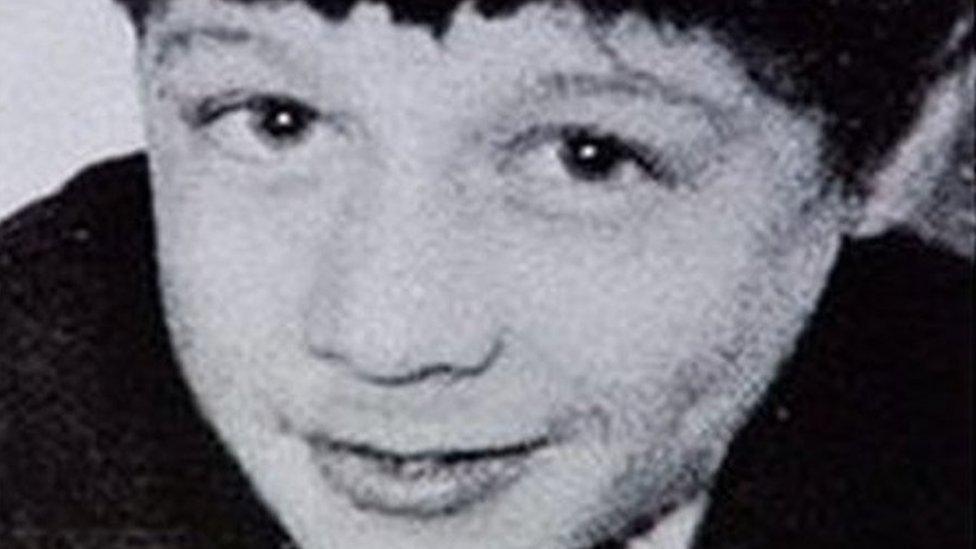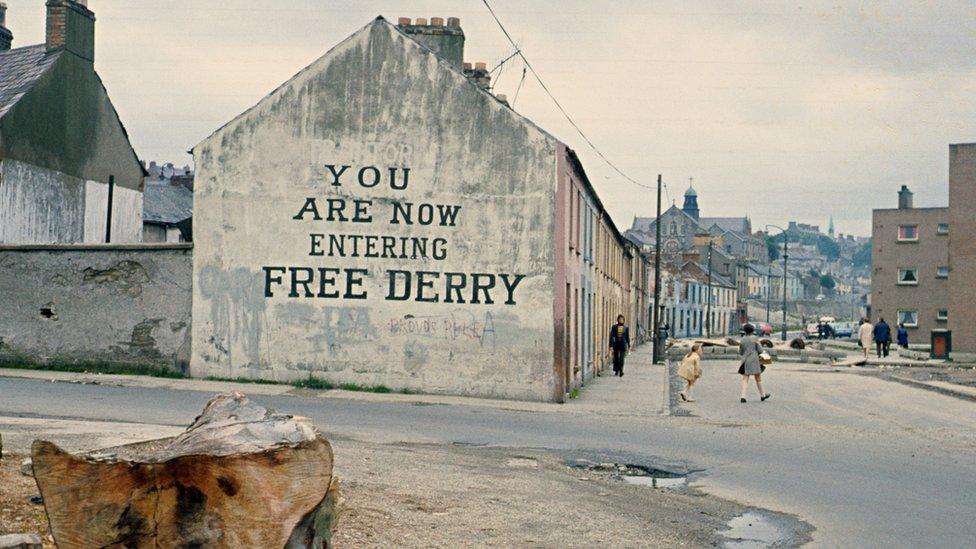Daniel Hegarty: Soldier B loses legal challenge against murder charge
- Published

Daniel Hegarty, 15, was shot dead by a soldier during Operation Motorman in 1972
A former soldier has lost a legal challenge against being prosecuted for the murder of a teenage boy in Londonderry 48 years ago.
The ex-serviceman claimed the decision to charge him over the killing of Daniel Hegarty put him at heightened risk of sudden death due to ill health.
But his challenge was rejected by Court of Appeal judges on Thursday, external.
Lord Justice Treacy said to accept it could give potential immunity for any suspect with a medical complaint.
"If correct, a serial killer or rapist could not lawfully be prosecuted if the medical evidence established that a decision to prosecute would expose him to that risk," he said.
Fifteen-year-old Daniel was shot twice in the head during an Army operation in Creggan in July 1972.
In April 2019, the Public Prosecution Service (PPS) announced that the military veteran, referred to as Soldier B, was to be charged with his murder.
He is further accused of intentionally wounding Daniel's cousin Christopher Hegarty, then aged 17, in the same incident.
History of the case
The shootings happened during Operation Motorman, when British troops were deployed in Derry at the height of the Troubles to clear so-called no-go areas.
In 2011, an inquest jury unanimously found Daniel posed no risk and had been shot without warning.
A decision was taken not to prosecute Soldier B in 2016.
But, in May 2018, the High Court quashed that determination following legal action by the Hegarty family.

In 1972 there were a number of "no-go areas" for the Army in Derry
The director of public prosecutions for Northern Ireland, Stephen Herron, then carried out a review of the case before announcing charges would be brought.
Lawyers representing the former soldier sought a judicial review of those decisions, claiming they violated Article 2 of the European Convention on Human Rights.
Reporting restrictions imposed earlier in the case were lifted to enable publication of full details of the challenge.
A 'bold' challenge
It was claimed that prosecutors failed to take Soldier B's health into account.
However, Lord Justice Treacy, sitting with Mr Justice O'Hara and Sir John Gillen, found that the director had carefully considered his condition.
Medical reports indicated the consequences of the decision to prosecute Soldier B would be more frequent chest pain and an "unquantifiable" increased risk of sudden death.
A doctor noted that no-one could predict when the deterioration in heart failure may occur, the court heard.
Describing the challenge as "bold", Lord Justice Treacy said, if successful, prosecutors could be inundated with medical reports from suspects trying to persuade them that they should not face trial.
Proceedings might also be hit by delays, endangering confidence in the criminal justice system, he said.
"If the argument of the applicant were accepted it would confer de facto immunity on any suspect with a medical condition capable of similarly increasing risk, consequential upon higher levels of stress resulting from a decision to prosecute.
"Furthermore, if the applicant's contention was right, the increase in the risk of death arising from the prosecution could as a matter of principle be deployed more than once."
Dismissing the challenge, the judge concluded: "The system of safeguards and protections is sufficient to satisfy the obligations of the state under Article 2."
Related topics
- Published10 February 2020
